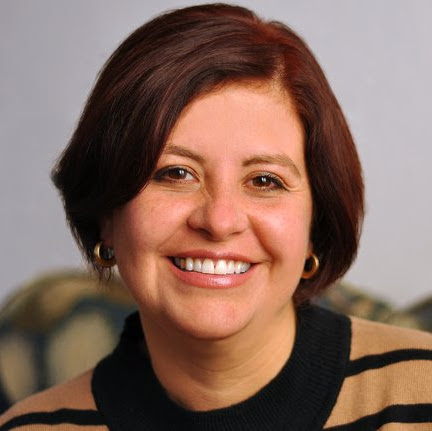
By Sarah Morgan
IT Professionals with experience and knowledge of cloud technologies are increasingly in demand. Demand for ‘cloud-ready’ IT professionals will grow by 26% annually through 2015, with as many as 7 million cloud-related jobs available worldwide, IDC report.
However, demand has outpaced supply. IT managers report that the reason they failed to fill an existing 1.7million cloud-related positions in 2012 was due to a lack of training and certification.
The IDC White Paper report that 56% of IT departments simply cannot find enough qualified staff to support their cloud projects.
Two giants are currently fighting it out for dominance of this thriving technology sector – Microsoft and Amazon Web Services.
Though Amazon may be the current cloud leader, it’s all too clear that Microsoft is closing the gap.
Especially so when considering Microsoft noted in its last earnings call that cloud revenue grew 147% year-over-year.
At WPC 2014, Microsoft also unveiled these impressive Azure statistics:
- 57% of Fortune 500 companies now use Azure
- 300,000+ active websites
- More than 30 trillion storage objects
- Over 1 million SQL databases in Azure
- 300 million Azure Active Directory users
With over $15 billion invested into building and maintaining datacentres across the globe, Microsoft is clearly committed to Azure. And it’s shows.
What is Azure?
Microsoft is going all in on Cloud technology. Microsoft Azure is an open collection of compute, storage, data and networking running in a global network of Microsoft-managed datacentres.
You may also know it as Azure Ad and Azure online backup but it’s role remains the same – it allows organisations to build infrastructure as a service (IAAS), Platform as a Service (PAAS) and Software as a Service Solutions (SAAS).
Sound familiar?
If you have recently studied Windows Server 2012 R2 and the latest versions of System Centre and SQL, you might have already studied Azure. Microsoft has already begun to introduce Azure material across their certifications and exams.
This highlights Microsoft’s commitment to Azure, and proves that an understanding of the software is becoming increasingly necessary in related certifications. After investing $15 billion into worldwide datacentres, it comes as no surprise.
And in the last couple of months, Microsoft have released courses, exams and certifications specifically based around Azure.
The two brand new Microsoft certifications are:
- Microsoft Specialist: Implementing Microsoft Azure Infrastructure Solutions
- Microsoft Specialist: Developing Microsoft Azure Solutions
Microsoft Specialist: Developing Microsoft Azure Solutions
If you’re a developer looking to enhance your Web Applications and Windows Store Apps through building your own cloud services – this certification is for you.
Or, if you hold the MCSD: Web Applications, this certification will prove a brilliant way to gain a greater understanding of the Azure platform.
This Specialist course, built for developers, teaches you how to establish your own Azure virtual network environment.
If you want to expand your development skills to cover Microsoft Azure, this is the certification for you. You’ll learn how to construct Azure Virtual Machines, create and host Azure websites and design resilient cloud applications.
To achieve the certification you’ll have to pass the Microsoft Exam: 70-532.
Microsoft Specialist: Implementing Microsoft Azure Infrastructure Solutions
Microsoft is now the second largest provider of cloud infrastructure solutions and this Specialist certification has been created to set you apart as a knowledgeable Cloud professional.
You’ll learn how to migrate your existing on-premise infrastructure to Microsoft Azure as well as:
- Plan and implement data services based on SQL
- Deploy and configure websites
- Publish content through CDNs
- Integrate on premises Windows AD with Azure AD
To achieve the certification you’ll have to pass the Microsoft Exam: 70-533.
When can you get certified?
You can sit both the 70-533 and 70-532 exams and attain your respective certifications now. But bear in mind – you have two options for scheduling these exams: Pearson VUE and Prometric.
If you want to sit your exam after January 1, 2015 – book it with Pearson VUE. This is because after December 31, 2014, Microsoft will stop delivering their certification exams through Prometric.
Training providers are racing to cater for the demand for these new Microsoft Specialist certifications. We are proud to announce that Firebrand is one of the first to market - and will be running courses in the coming months.
How to know when you’re ready
These Microsoft Specialist certifications are not part of the traditional MTA, MCSA and MCSE / MCSD tracks. As a result, you won’t find any pre-requisites for these Azure certifications.
However, Firebrand instructor, Mike Brown has reviewed the curriculum of both Specialist certifications and strongly recommends an in depth understanding of virtualisation before taking on these exams.
Because of this emphasis on virtualisation, if you possess the MCSA: Windows Server 2012 R2 certification, you’ll be better prepared than most for these new Azure Specialist courses. Those without this cert should consider it as a great introduction to virtualisation.
Prepare for your Microsoft Specialist cert now
To get started on Microsoft Azure - take a look at the Microsoft Virtual Academy. You’ll find 28 Microsoft Azure short courses available which provide a great self-study introduction to the technology.
Because these Azure certifications are so new and in-depth, you won’t find a great deal of external resources. As a result, self-study could prove unjustifiably tough.
But, if you can prove your knowledge of Azure, you’ll be well placed to take full advantage of the driving demand for Cloud technology.
Sarah writes for Firebrand Training on a number of IT related topics. This includes exams, training, certification trends, project management, certification, careers advice and the industry itself. Sarah has 11 years of experience in the IT industry.


ليست هناك تعليقات:
إرسال تعليق